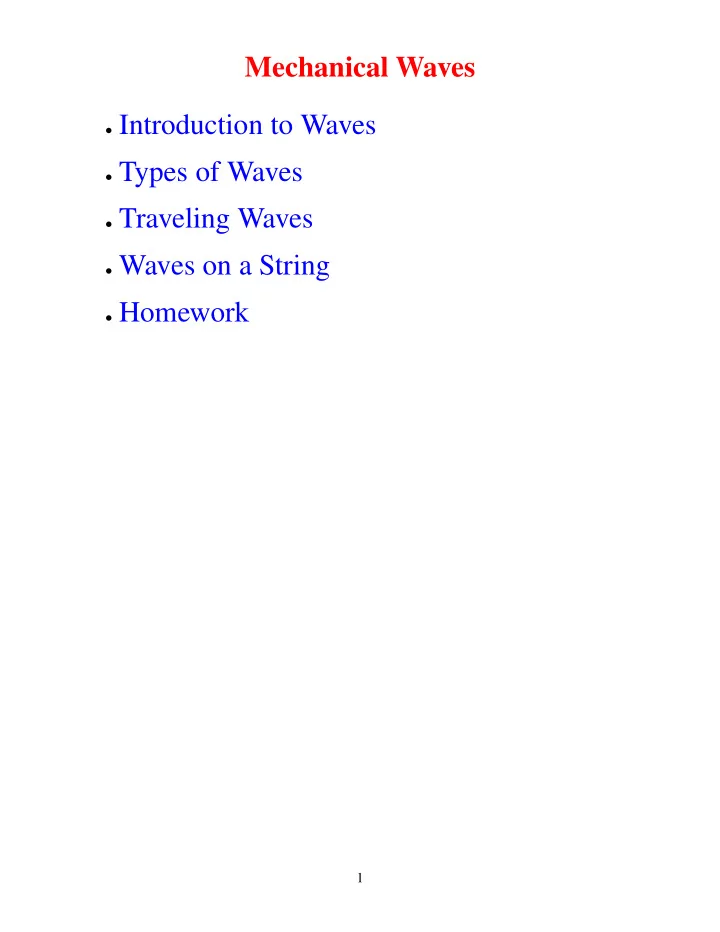

Mechanical Waves • Introduction to Waves • Types of Waves • Traveling Waves • Waves on a String • Homework 1
Introduction to Waves • Wave motion appears in almost every branch of physics, e.g. sound, light, radio and other electromagnetic waves • A wave is a disturbance that travels at a def- inite speed (v= λ f) and transfers energy and momentum • Mechanical waves travel in elastic media (e.g. sound) • Electromagnetic waves are oscillating elec- tromagnetic fields and do not require a medium (the speed of EM waves in a vacuum is c=3x10 8 m/s) 2
Types of Waves • Transverse waves - displacement is perpen- dicular to direction of propagation – Traveling wave on a string • Longitudinal wave - displacement is parallel to direction of propagation – Traveling wave in a spring Sound 3
Transverse Waves • Displacement is perpendicular to direction of propagation – Traveling wave on a string 4
Longitudinal Waves • Displacement is parallel to direction of prop- agation – Traveling wave in a spring – Sound 5
Traveling Waves • The wavefunction for a wave traveling in the +x direction has the form y ( x, t ) = f ( x − vt ) • The wavefunction for a wave traveling in the -x direction has the form y ( x, t ) = f ( x + vt ) 6
Sinusoidal Waves 2 π y ( x, t ) = A sin λ ( x − vt ) 7
Sinusoidal Waves (cont’d) • Wavelength ( λ ) is the distance between two adjacent points in the wave having the same phase • The period (T) is the time required for the wave to travel one wavelength, λ = vT x λ − t y ( x, t ) = A sin 2 π T 8
Sinusoidal Waves (Cont’d) y ( x, t ) = y ( x + λ, t ) = y ( x + 2 λ, t ) = . . . y ( x, t ) = y ( x, t + T ) = y ( x, t + 2 T ) = . . . • The wavefunction can also be written as y = A sin ( kx − ωt ) where k = 2 π λ is the wave number and ω = 2 π T = 2 πf is the angular frequency • The speed of the wave is v = λ T = ω k = λf • If y � = 0 at x = 0 and t = 0 y = A sin ( kx − ωt + φ ) where φ is the phase constant 9
Speed of Waves on a String F r = 2 T sin θ ≃ 2 Tθ m = µ ∆ s = 2 µRθ F r = mv 2 R 2 Tθ = 2 µRθv 2 R � T � � � v = � � � µ � 10
Homework Set 24 - Due Wed. Nov. 10 • Read Sections 13.1-13.4 • Answer Questions 13.2, 13.9, 13.10 & 13.11 • Do Problems 13.1, 13.2, 13.3, 13.5, 13.10, 13.13 & 13.14 11
Recommend
More recommend